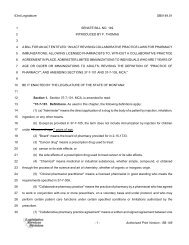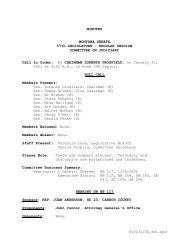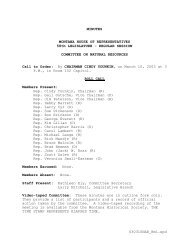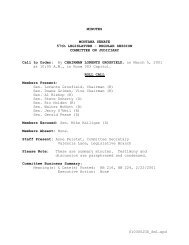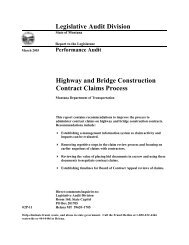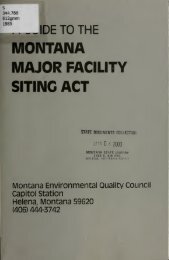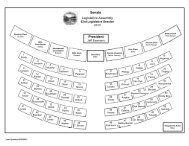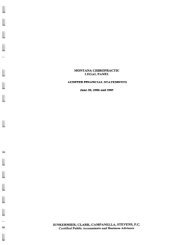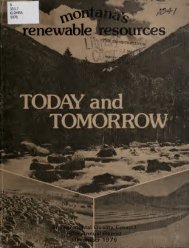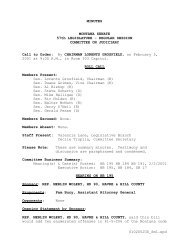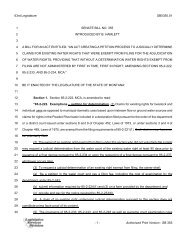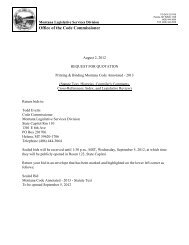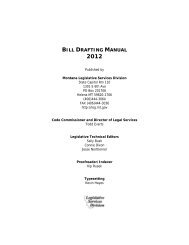Public Comment. Volume III - Montana Legislature
Public Comment. Volume III - Montana Legislature
Public Comment. Volume III - Montana Legislature
You also want an ePaper? Increase the reach of your titles
YUMPU automatically turns print PDFs into web optimized ePapers that Google loves.
These examples illustrate that clear and convincing evidence should be required before<br />
depriving citizens of their property. It is wrong that owners of real property are not protected by<br />
the same evidentiary standard. It is currently easier to deprive landowners of their fundamental<br />
right to own property than it is to prove someone broke a city parking code.<br />
Further, <strong>Montana</strong>'s environmental statutes hold plaintiffs to standards of clear and<br />
convincing evidence. The Environmental Policy Act requires citizens to prove that agency actions<br />
in approving environmental impact statements were arbitrary and capricious with this higher<br />
standard. Section 75- 1-20 1, MCA. Megalandfill Siting Act and Major Facility Siting Act<br />
proceedings require applicants to prove their certificates of environmental compatibility should<br />
be approved by clear and convincing evidence. Section 75-10-928(3), MCA.<br />
Considering the wide number of civil court cases requiring clear and convincing<br />
evidence, industry's unsubstantiated argument that raising the standard for burden of proof will<br />
somehow harm business or slow the economy does not withstand scrutiny. To the contrary, the<br />
evidentiary standard for condemnation will improve the position of <strong>Montana</strong>'s largest industry -<br />
agriculture.<br />
NPRC wants to stress to the Subcommittee that raising the standard for the condemnor's<br />
burden of proof must only be done in conjunction with other, more substantive reforms of the<br />
eminent domain law. As they testified in Helena, Missoula, and in Billings, landowners want<br />
reforms that:<br />
Make condemnors minimize damage to private property;<br />
Ensure that only true public uses get the power of eminent domain;<br />
Provide for just compensation which covers damages to the remainder of the property<br />
not taken;<br />
Allows landowners to retain possession of their property while the case is on appeal;<br />
and<br />
Makes eminent domain for private companies a privilege, not a right, by requiring<br />
condemnors to: (a) prove they have adequate financial resources; (b) use the land<br />
only for one particular project; (c) limit their interest taken to an easement when<br />
requested by the landowner; and (d) give back the land if they don't build their<br />
project with due diligence or if they cease using the land for five years.<br />
We ask the Subcommittee to vote at its April 12 meeting to draft legislation enacting the<br />
recommendations above.<br />
Again, thank you for the opportunity to comment. If you have any questions, please feel<br />
free to contact our office.<br />
Sincerely,<br />
L;F%F<br />
DENA HOFF<br />
NPRC Chair<br />
March 31,2000<br />
Page 3<br />
-1 10- <strong>Volume</strong> Ill: <strong>Public</strong> <strong>Comment</strong>



